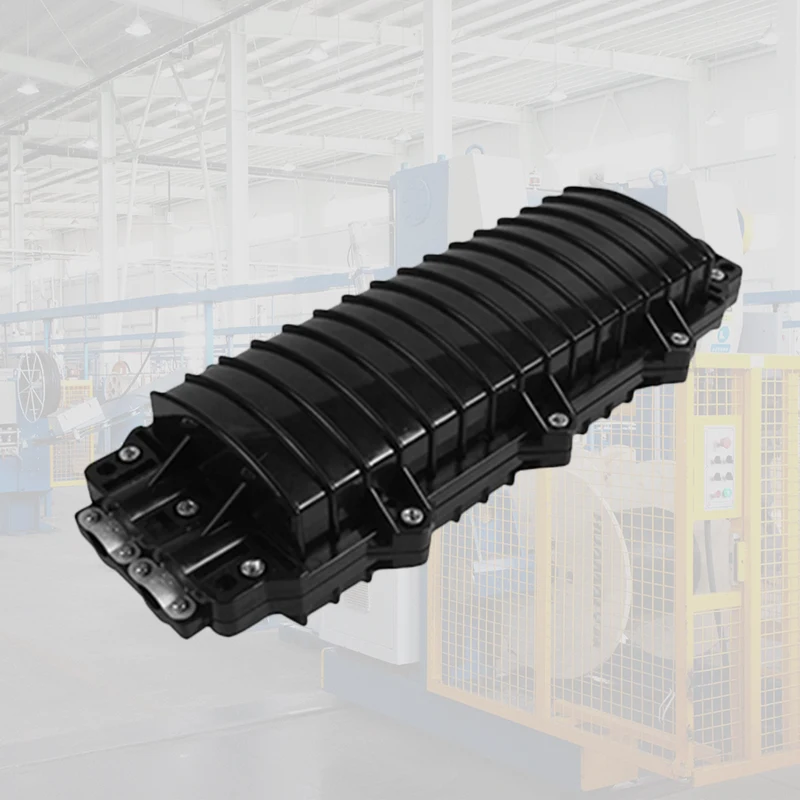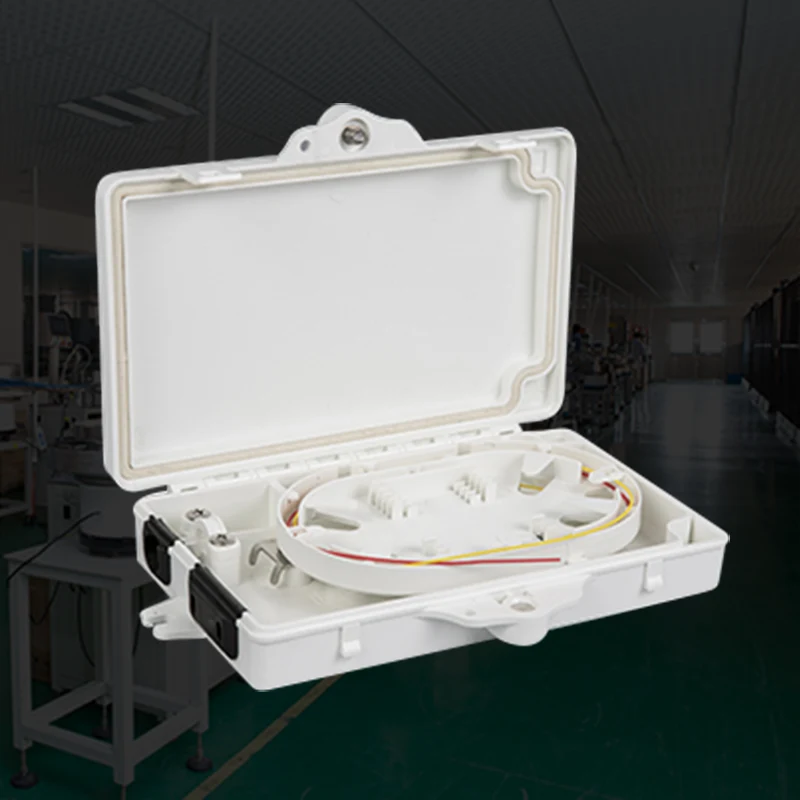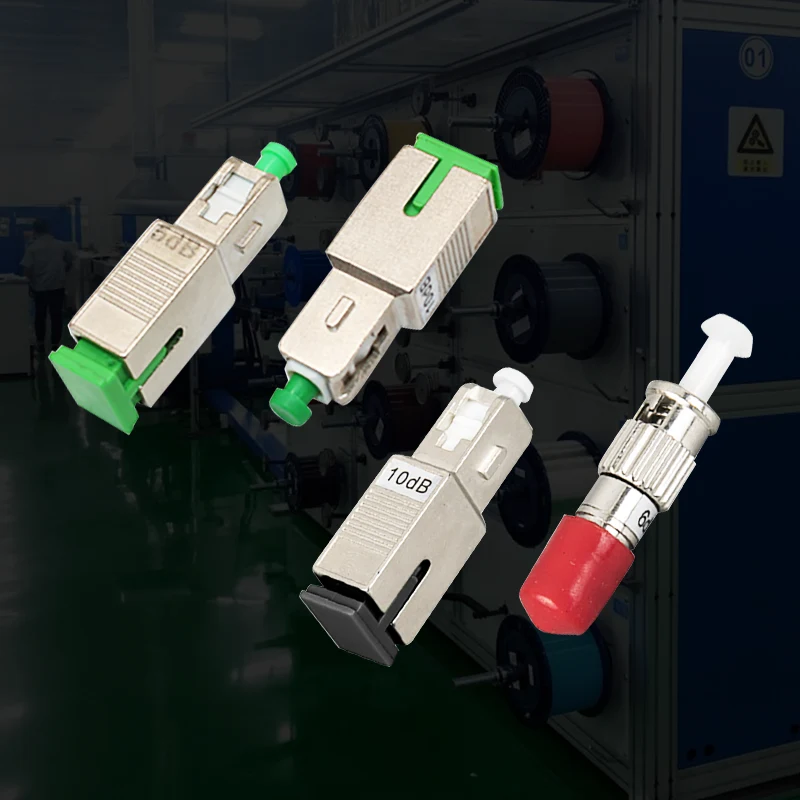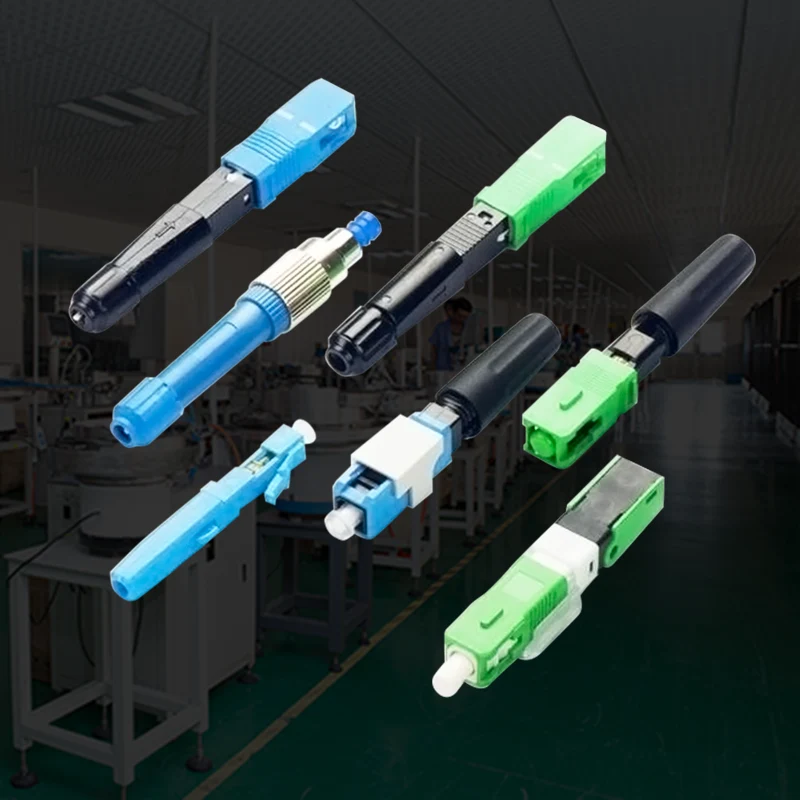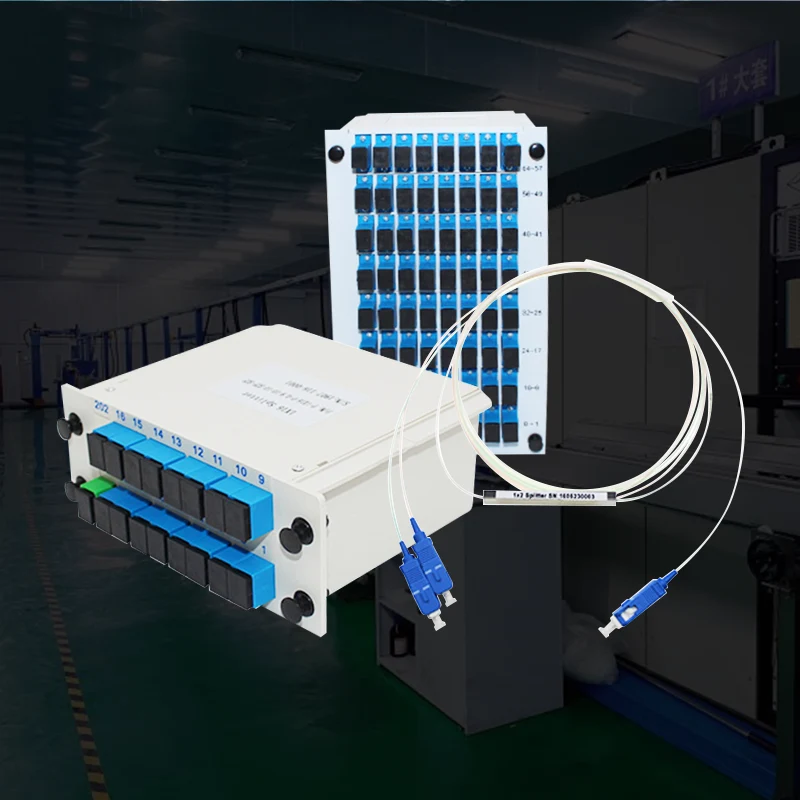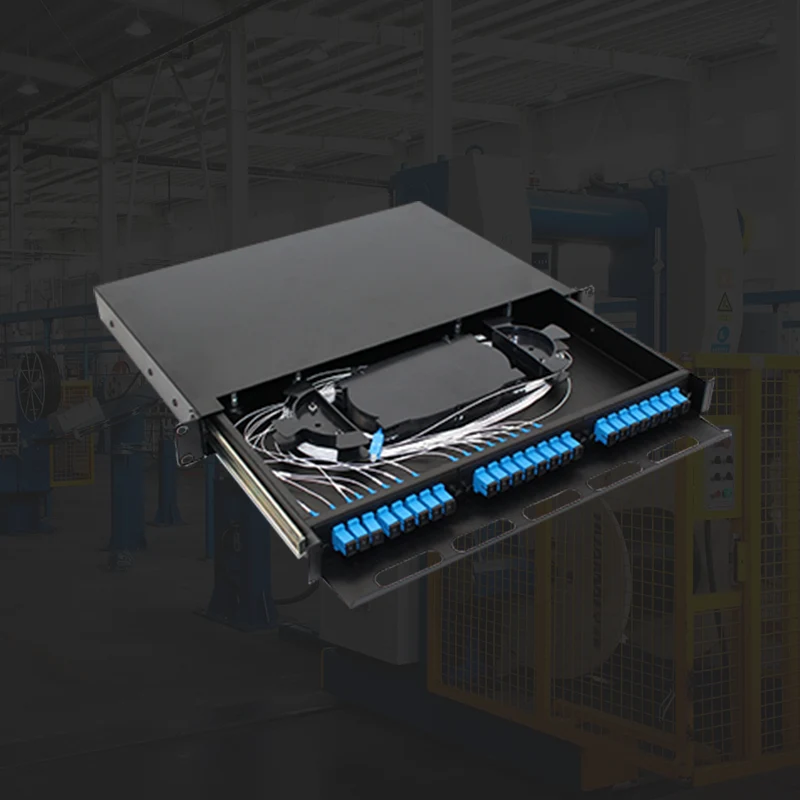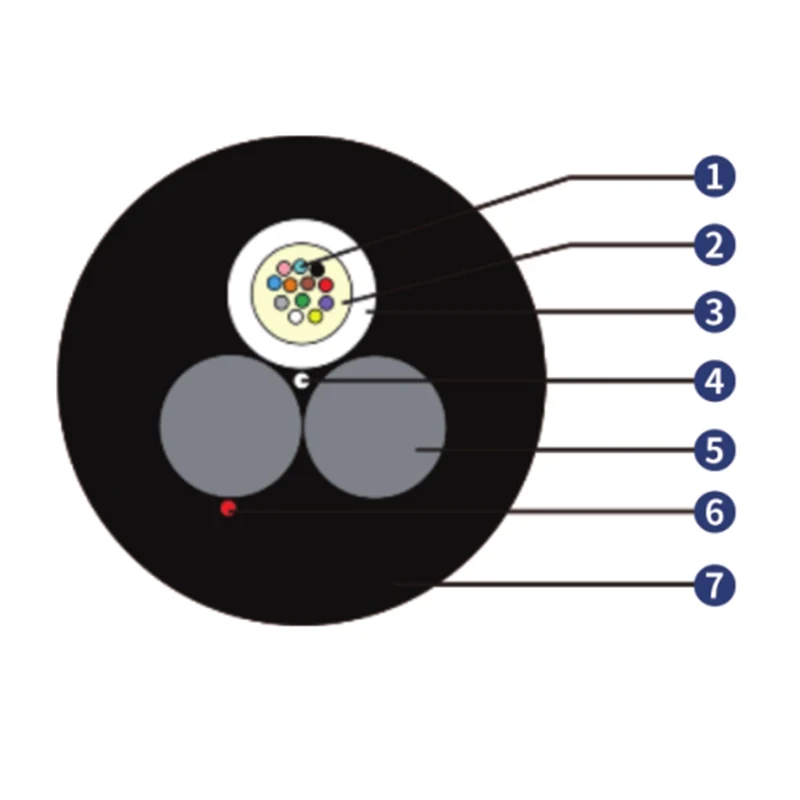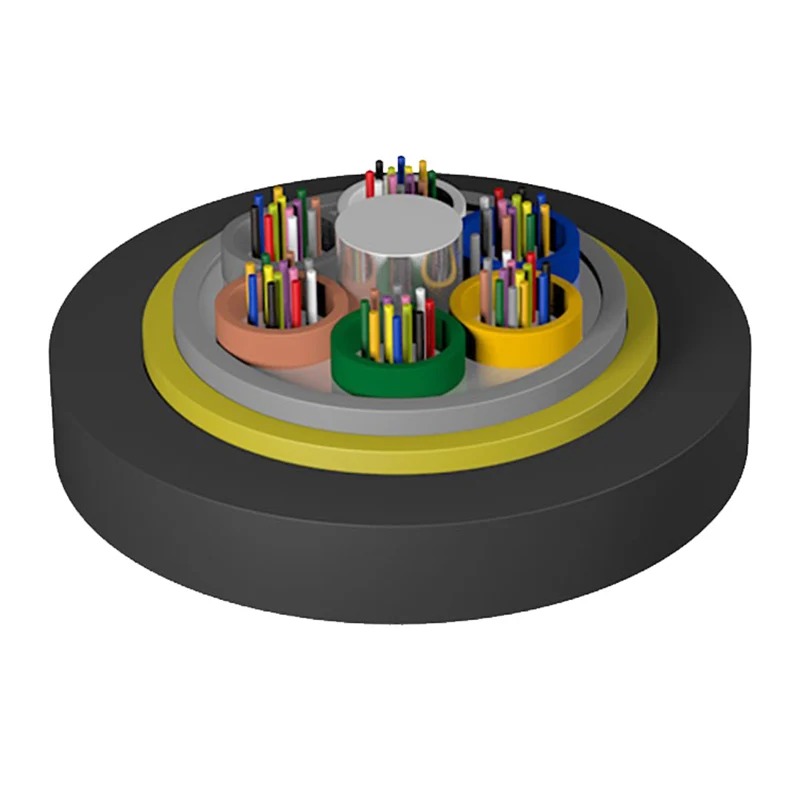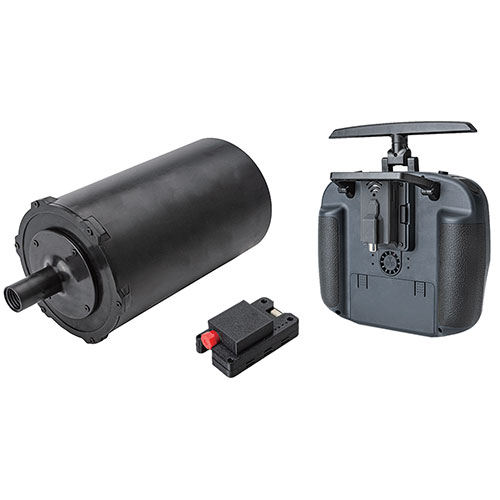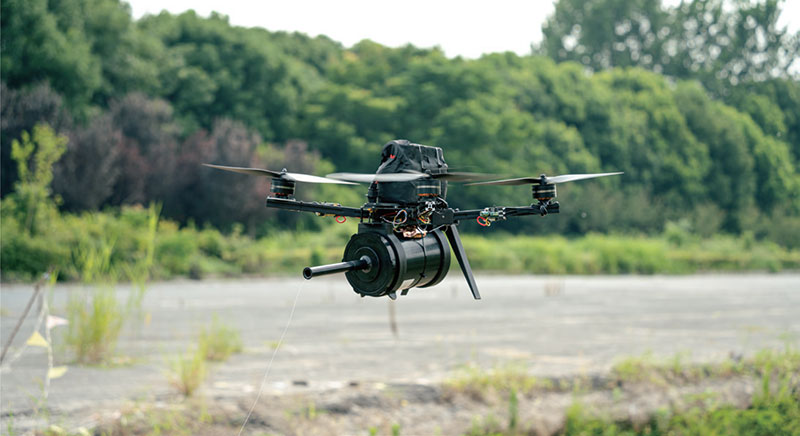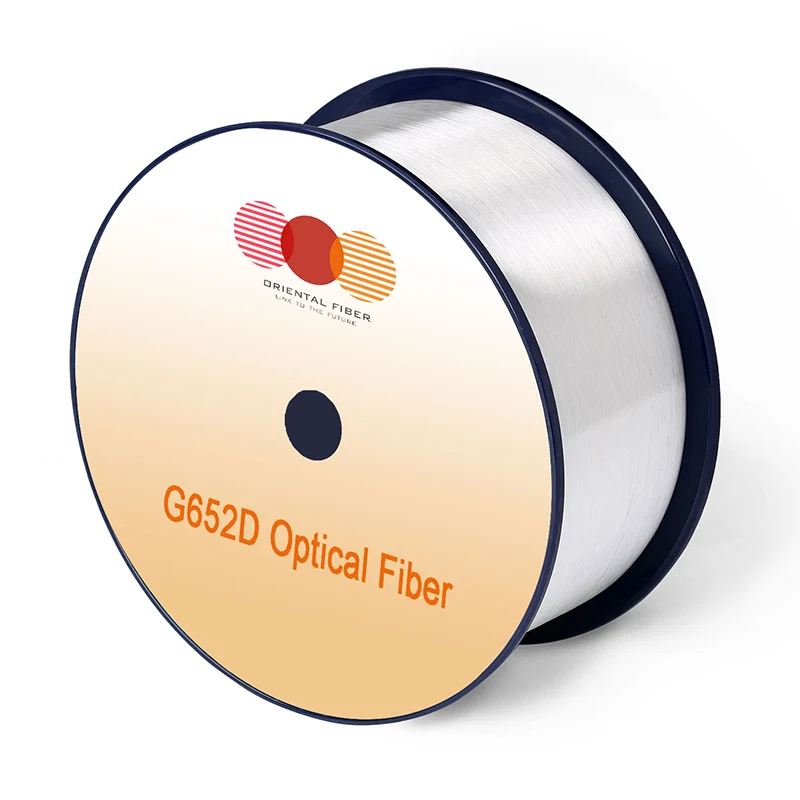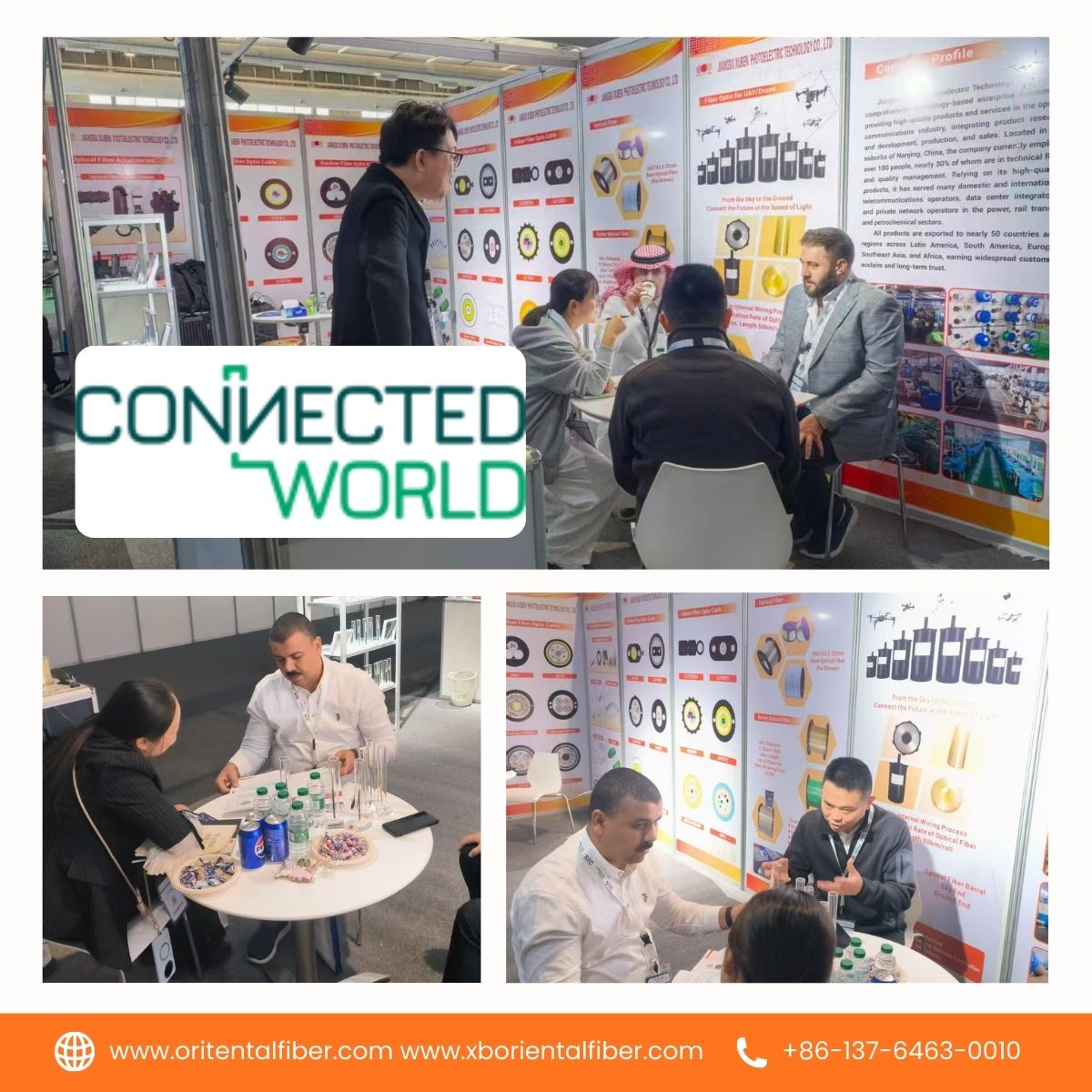ADSS cables, or All-Dielectric Self-Supporting Stranded Optical Fiber Cables, are made entirely of non-metallic materials, including a non-metallic reinforcing core, optical fibers, aluminum foil shielding, and a non-metallic protective jacket. This construction gives the cable excellent insulation properties, making it immune to electromagnetic interference. ADSS cables have sufficient strength to support their own weight and external loads, eliminating the need for additional steel cables or conduit supports. They can be directly suspended on utility poles, light poles, and other power infrastructure, making installation and maintenance straightforward.
The non-metallic reinforcing core is typically made from high-strength polymers such as polyimide or nylon, capable of withstanding significant tension. The all-dielectric structure also keeps the cable lightweight, facilitating installation and transportation. ADSS cables use optical fibers to transmit signals, offering high bandwidth capabilities for high-speed, large-capacity data transmission. The aluminum foil shielding reduces external electromagnetic interference and signal loss, improving the overall quality of signal transmission. Made from durable materials, ADSS cables have a long service life and can operate stably in harsh weather and environmental conditions. The non-metallic protective jacket further safeguards the cable from mechanical and climatic damage.
The installation and maintenance costs of ADSS cables are relatively low, effectively reducing construction and operational expenses. Additionally, their non-metallic composition makes them environmentally friendly.
In power systems, ADSS cables play a crucial role in power dispatch, monitoring, and protection, ensuring the stable operation of the grid. They can transmit power data in real-time, providing reliable communication support for remote monitoring and real-time control of power systems. ADSS cables are also used in the construction of intelligent transportation systems in highways, urban roads, and railways. They offer high-speed, stable data transmission, supporting the development of smart traffic signal control, surveillance systems, and intelligent highways and railways. In urban development, ADSS cables are essential for the informatization and intelligent development of cities. They are used in communication needs for urban traffic signal control, surveillance systems, smart grids, city lighting systems, and security systems. In fiber-to-the-home networks, ADSS cables serve as the wiring material, providing high-speed broadband access and data transmission services, ensuring reliable network connections for urban residents and businesses.





